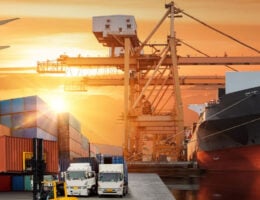For the third week, we continued our Annual Compliance Conference with key customs developments impacting on businesses today. Specifically, we discussed the reform of the Union Customs Code in the EU, key trending customs developments in EMEA, and different methods of driving significant financial savings in global supply chains.
In this session, we covered the expected implications for VAT audits going forward and gave an overview of the expected areas of focus. VAT and customs often go hand in hand, hence we also covered customs audits and investigations which are very complex and are often difficult to handle for groups due to limited compliance resources in this field. We also took this opportunity to touch upon the difficulties faced by companies regarding the different sanction packages adopted by the EU Commission and uncovered what a typical trade investigation looks like and what the focus areas are. Finally, we provided recommendations on how to best avoid an adverse outcome by implementing quality control and monitoring procedures.
Baker McKenzie’s Import and Trade Remedies blog recently published Business consequences and recommendations on the tightened import ban on iron and steel imposed by the EU, which can be found here.
The European Commission previously announced plans to include binding valuation information decisions in its customs legislation. The Commission has published the draft Delegated Regulation and obtained feedback from a public consultation, which ended on 18 January 2023. The Commission describes this move as the completion of an already well-established legal and operational framework for issuing decisions relating to binding tariff classification information and binding origin information.
On 15 February 2023, the World Customs Organization hosted a Symposium on E-Commerce and Customs Valuation. Several key challenges were identified: the fragmentation in the system due to data overload from low level shipments; the consequent shortfalls within data systems and processing; and compliance and enforcement challenges. The sessions provided a high level overview from the WCO and World Trade Organization of the current scope of challenges and questions to consider, and featured substantive presentations on the challenges faced by national Customs Authorities with input from the private sector in navigating the rapidly growing cross-border e-commerce trade.
On 6 February 2023, the European Council published Council Regulation (EU) 2023/246 on the exchange of information in electronic registers in the Official Journal of the European Union. The (recast) regulation extends the obligation to maintain electronic registers relating to economic operators who move excise goods between Member States for commercial purposes from 13 February 2023.
A series of new rules were rolled out on 13 February 2023 which will make the taxation of alcohol, tobacco and energy products fully paperless across the EU. They are part of a wider expansion of the common excise duty provisions in the EU. The aim of this new standardized electronic system is to alleviate some of the rigorous procedures faced by energy suppliers and small producers of alcohol.
The secret is out, this will most likely not be news to you but there is a strong interplay between Transfer Pricing, Customs and VAT. Even though income tax authorities may have different views in how they consider valuation from a TP perspective and the valuation structure recognized by customs authorities, we can no longer ignore that a company’s TP policy/adjustments will affect their cross-border transactions of tangible goods and ultimately impact their dutiable/VAT position.







